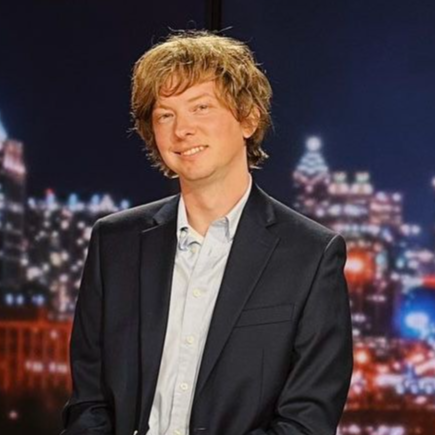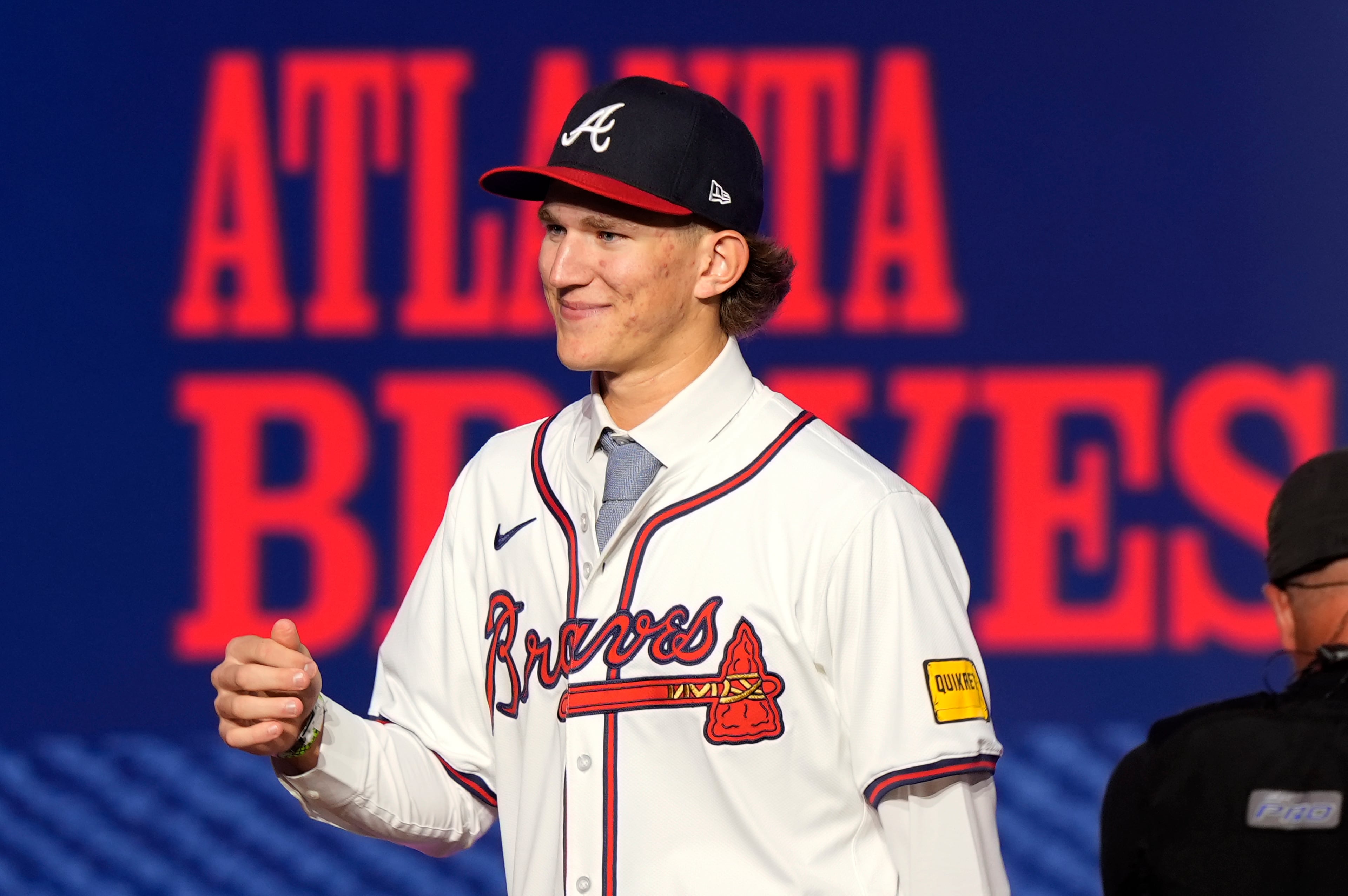For Kyle Wright, it’s ‘only a matter of time’

Last year was supposed to be Kyle Wright’s breakthrough. The fifth overall pick in 2017 was on the accelerated path that’d become common with recent Braves youngsters. He seemed ahead of schedule, making the rotation out of spring training and starting the third game last season.
Wright pitched 4-1/3 innings that day in Philadelphia, an eventual 5-1 loss. He’d make two more starts, allowing eight runs over 9-2/3 frames, before the Braves banished him back to Triple-A. He’d start only one more major league game, getting roughed up for seven runs in 2-2/3 innings against the Nationals on June 18.
The right-hander looked improved in three September relief appearances, but by that point, his season was considered underwhelming. Rather than establishing himself as a rotation regular, Wright was yo-yoed between the majors and minors, unable to distinguish himself amongst a crowded field of arms.
“Yes and no (the up-and-down experience was frustrating),” Wright said. “That’s part of it. It’s something you have to do. And I think we’re happy to do it because we want to help the team win. It is frustrating, but it’s part of it. It’s a good learning experience for us.
“Every time we get to come up there, we learn more than the previous time. Anytime we get sent down, we pitch, we learn and take it with us. I think it’s good learning experiences, but obviously we all want to stick. That’s the goal. Anything I can take from those experiences and bring them into this year and learn and grow will be beneficial.”
The “we” Wright referenced encompassed his colleagues who are undergoing similar trials. Bryse Wilson and Touki Toussaint have likewise bounced between levels. Before cementing himself in 2019, Max Fried did the same for two seasons.
Mike Soroka and Fried are the tangible fruits of the Braves’ rebuild, important contributors for a playoff team. Top prospect Ian Anderson is generating intrigue with his debut looming. As such, Wright is somewhat overlooked, an unexpected occurrence from a player many believed was deserving of the first overall selection three drafts ago.
After another winter working out in Nashville, Wright came to spring training again jockeying for a rotation spot. He's further tweaked his mechanics, drawing kudos from pitching coach Rick Kranitz and bullpen coach Marty Reed. He'd already been altering his delivery last season thanks to advice from organizational pitching guru Dom Chiti.
The Braves have two starter slots temporarily available due to Cole Hamels’ injury. Wright is competing with Felix Hernandez, Sean Newcomb and Wilson to crack the opening day roster. Yet as he learned last year, beginning the year in the rotation can mean very little.
The life of a 24-year-old prospect is often fluid, especially when his organization is prioritizing winning over development at the major league level.
“I’ve pitched really well in certain bursts, so I feel like for me it’s about being able to do that over the whole season,” Wright said. “You’re going to have bad outings, I’m not saying I’m going to go seven (innings) every time, but being able to manage the bad outings and pushing through five to give the team a chance to win. For me, it’s about being consistent and that starts with command in general. I think if I can really hone in my command with the fastball first, then base the off-speed pitches off that, I feel like that’ll help me a lot.”
It’s easy to forget Wright only has 25-2/3 innings in the majors. He’s only logged 293 innings since leaving Vanderbilt. He came to Atlanta with the near-MLB-ready label, but that can also make for unrealistic expectations.
His overall stats won’t wow you, but that doesn’t necessarily matter. Just ask Soroka, who passionately made a case for Wright’s development.
“Kyle, he’s one of those ones where (the talent) was obvious,” said Soroka, who made the All-Star team as a 21-year old. “To be able to pitch a few innings in High-A, then was in Double-A, and that was like half a season or something like that – something along those lines says a lot about a guy and how he’s able to compete when he’s thrown into it. Kyle is another one that when you look at the stuff he has, you know it’s only a matter of time until he puts it together and does something special. He’s another one of those games to catch where he throws heavy, spins it right. It’s right there.
“I think a lot of people see stats and all that stuff but they don’t actually watch him pitch. We saw a little bit at the end of the year when he was in the bullpen with us. If I’m not mistaken, he was pretty close to making the playoff roster in the bullpen. That’s him. He’s a competitor and he’s constantly trying to improve.”
In laying out Wright’s case, Soroka invoked Tyler Glasnow, a heralded prospect who took time finding his place. Glasnow debuted at 22 and had a 5.79 ERA in 141-1/3 innings with the Pirates. After parts of three seasons, they dealt him to the Rays in a package for Chris Archer.
Under a new development staff, Glasnow realized his potential last season, earning a 1.78 ERA with 76 strikeouts against 14 walks in 12 starts (his campaign was derailed by injury).
Soroka compared him to Wright in explaining how subtle differences can help talented pitchers realize their abilities. And that when it comes together for Wright, he’ll be an immediate big-time arm.
“It’s a hard game,” Soroka said. “There are certain things that he might have to find to be able to put him over that edge. And once it clicks, man, he could be one of those that it really, really clicks. Obviously you don’t want to put any names or comparisons because they are different pitchers, but Tyler Glasnow struggled for a long time and people wondered why. I don’t know exactly what it was that clicked for him, but when it did, you saw what he can do. Kyle can be like that too.”
Other teammates have vouched for Wright’s growth, including veteran catcher Tyler Flowers, who reiterated Soroka’s thoughts on box score scouting, adding it often does the pitcher a disservice.
Wright found some statistical justification in those three September relief outings. He pitched three innings, allowing one run, and struck out four while walking none. It was a small sample that provided clear progress after Wright walked a whopping 13 hitters over his first four starts (16-2/3 innings).
“I felt like his aggressiveness, his demeanor, was different,” Flowers said, recalling Wright in the season’s final month. “He had a different intent throwing the ball, I thought. A little more reckless, in a good way, instead of trying to make sure he gets it here, gets it there. Instead of being cautious, he was just trusting the work and making adjustments, seeing whatever pitch we were about to throw and firing it in there. I think that’s huge. That displays confidence. When you’re confident, you’re going to play better in any sport.”
As the Braves have welcomed an ensemble of pitchers in recent years, “aggressive” and “confident” have become buzz words. Proving to yourself that you belong in the bigs isn’t an overnight process. Self-assurance is needed in every walk of life, whether you’re a pitcher, writer, banker or lawyer.
Wright, the No. 64 overall prospect by Baseball America’s standards, is still in the nurturing stage. Fried was there not too long ago, also trying to find confidence and enable his aggression.
“When you start the season, and I’ve been there, when you go up and down a lot, and you’re not sure where you’re going to be at, there’s a lot of uncertainty and it’s hard to get into a rhythm,” Fried said. “But when he was able to be in one spot (Gwinnett) for a little bit, get his rhythm going and have that set routine, you could see him start to climb and be the pitcher he knows he can be. He’s obviously extremely talented and extremely special. He’s got a lot of really good stuff. I think this is going to be a really good year for him.”
Certainly, Wright fortifying a spot this season would go a long way in solidifying the Braves’ rotation. There are questions after Soroka, Fried and Mike Foltynewicz. They’d love for one of their prospects to replicate Fried’s 2019 season and make himself a fixture in the team’s plans.
Maybe, be it in April or July, Wright can be that guy. They won’t need him to become a frontline pitcher right now, but a more reliable option? That’d be good for everybody.
And it might just help Wright find his permanent footing.


